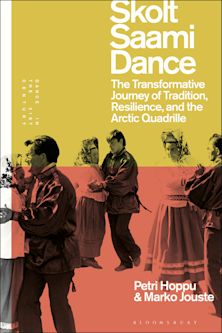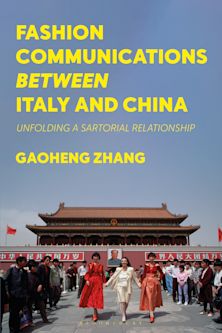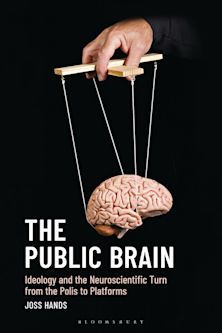- Home
- ACADEMIC
- Anthropology
- Cultural Anthropology
- Television and the Modernization Ideal in 1980s China
This product is usually dispatched within 3 days
- Delivery and returns info
-
Free CA delivery on orders $40 or over
You must sign in to add this item to your wishlist. Please sign in or create an account
Description
Television and the Modernization Ideal in 1980s China: Dazzling the Eyes explores Chinese television history in the pivotal decade of the 1980s and explains the intellectual reception of television in China during this time. While the Chinese media has often been a topic within studies of globalization and the global political economy, scholarly attention to the history of Chinese television requires a more extensive and critical view of the interaction between television and culture. Using theories of media technology, globalization, and gender studies supplemented by Chinese periodicals including Life Out of 8 Hours, Popular TV, Popular Cinema, Modern Family, and Chinese Advertising, as well as oral history interviews, this book re-examines how Western technology was introduced to and embedded into Chinese culture. Wen compares and analyzes television dramas produced in China and imported from other nations while examining the interaction between various ideologies of Chinese society and those of the international media. Moreover, she explores how the hybridity between Western television culture and Chinese traditions were represented in popular Chinese visual media, specifically the confusions and ambitions of modernization and the negotiation between tradition and modernity, nationalism and internationalism, in the intellectual reception of television in China.
Table of Contents
Chapter 1: What Could You Do With a Television Set?: The Legitimization of Television
Chapter 2: Jump Starting a Learning Process: The Ownership of TV Sets and Social Status
Chapter 3: Documenting Nature: TV and the Representation of Nature in 1980s China
Chapter 4: TV and the Other Modern Mass Media
Chapter 5: Providing More Choices?: Domenstic and Imported TV Dreamas and Gender Confusion
Epilogue: Continuity, Importation, Creation and the Chinese TV Industry
Product details
| Published | Oct 19 2015 |
|---|---|
| Format | Paperback |
| Edition | 1st |
| Extent | 174 |
| ISBN | 9781498525237 |
| Imprint | Lexington Books |
| Illustrations | 9 BW Illustrations, 18 BW Photos |
| Dimensions | 229 x 151 mm |
| Publisher | Bloomsbury Publishing |
Reviews
-
This welcome book comes in response to an uptick in research on television and modernization. The volume's first strength is its compact assessment of the subject in China. The attention to programming, not just policy, and the wider conversation about television in other media are also notable. . . .[I]n looking at how 'the tube' stood as a symbol and instrument of social change and modernity in China, Wen makes a useful contribution to studies in television history and Chinese media. She discusses what people watched and how the images on this new device in the home (and the set itself) entered and altered their lives. The new medium sat in a constellation of older media and practices of communication and culture. The disruptions caused by television therefore carried the markings of China, but readers will recognize commonalities with experience in other countries as well. Summing Up: Recommended. Graduate students, researchers, faculty.
Choice Reviews
-
During the 1980s, China embraced TV technology more quickly and enthusiastically than any other society. It’s a story often told, but little understood, until now. Huike Wen shows how television played a pivotal role in the social and cultural transformations that took place during Deng Xiaoping’s decade of the four modernizations. Inspired by Lynn Spigel, Wen recovers the texture of the times to vividly explain how China 'made room for TV.'
Michael Curtin, Mellichamp Professor, University of California, Santa Barbara; author of Playing to the World's Biggest Audience
-
An interesting, enlightening, and thoughtful book on changes in China’s TV programming as a mirror of the modern transformation and unprecedented evolution of the milliard people’s society!
Junhao Hong


































